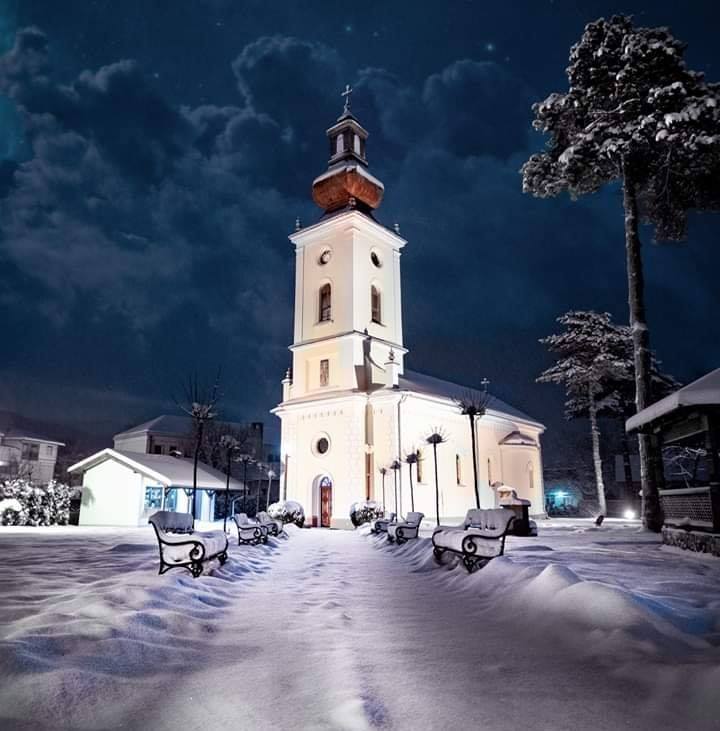[On the role of Prince Lazar in the reconciliation of the churches]
At this place, one should begin a tale sweet and pleasant for all who hear it. Here, that land produces a worthy fruit of itself, which for a long time it has prided itself on not only as a lord but also as a dear father and a brave companion, wise and gentlest in all things. Since the land was as barren and dried up, it awaiting to be watered, and changed by many sins, it was deemed worthy of a great inheritance.
This is the great and glorious Lazar,1 whose name is like that of his son. For he was not praiseworthy in one aspect and lacking in another, nor did he excel in one and was defeated in another, but in everything, he was wonderful; and to leave all else aside, as most of what I will say is already known to all.
Let there henceforth be no more difference [among] churches, as it was before; I mean from the days of Emperor Stefan, called Dušan,2 the Serbian church separated itself from the universal church and began to sink into evil, as a great fire often flares up from a small spark.3 Secondly, the Ismaili4 tribe, which poured over us like locusts – some they took away, others they captured, some they plundered, others they slaughtered, breaking and crushing everything wherever they found themselves and always imposing themselves – they went to devour what was left and mercilessly destroy it. And it was a hopeless prospect that this would change for us who sin and who do not turn to the only one who changes everything. His [Lazar’s] first concern was precisely what concerns heaven [the concern] for church peace and organisation, for he saw its [i.e., the church’s] division and that it was an inconvenient matter. As a great sage, he takes glory in the very things; and where an insurmountable feat is needed, he takes the matter into his own hands; and where ingenuity is needed, he did not neglect any matter; and immediately arranged for the two sister churches, which had been weeping separated from each other for a long time, to be companions to one another. Is there anything greater for a ruler on earth or what is more pleasing to God?
Having firmly established this, he moves on to other matters: wherever he saw any kind of cities and regions, households and churches of the devout, where some were burned by fire, others demolished, and many murders and rivers of blood that flowed, and other similar things. For the power of the Greeks had long been waning, and the Ismailis had multiplied and spread so much that they even reached the western regions, and they had the Persians with them…
- Tran. note: Prince Lazar Hrebeljanović (c.1329-1389), the father of Despot Stefan Lazarević. ↩︎
- Tran. note: Stefan Uroš IV Dušan Nemanjić (c.1308-1355), King of Serbia from 1331 and Emperor of the Serbs, Greeks and Bulgarians from 1346. ↩︎
- Tran. note: In order to be crowned Emperor, King Dušan had to first elevate the Serbian Orthodox Church to the rank of a Patriarchate, which caused a rift with the Patriarchate in Constantinople. ↩︎
- Tran. note: A contemporary way to reference the Turks. ↩︎
Translated by Books of Jeremiah



